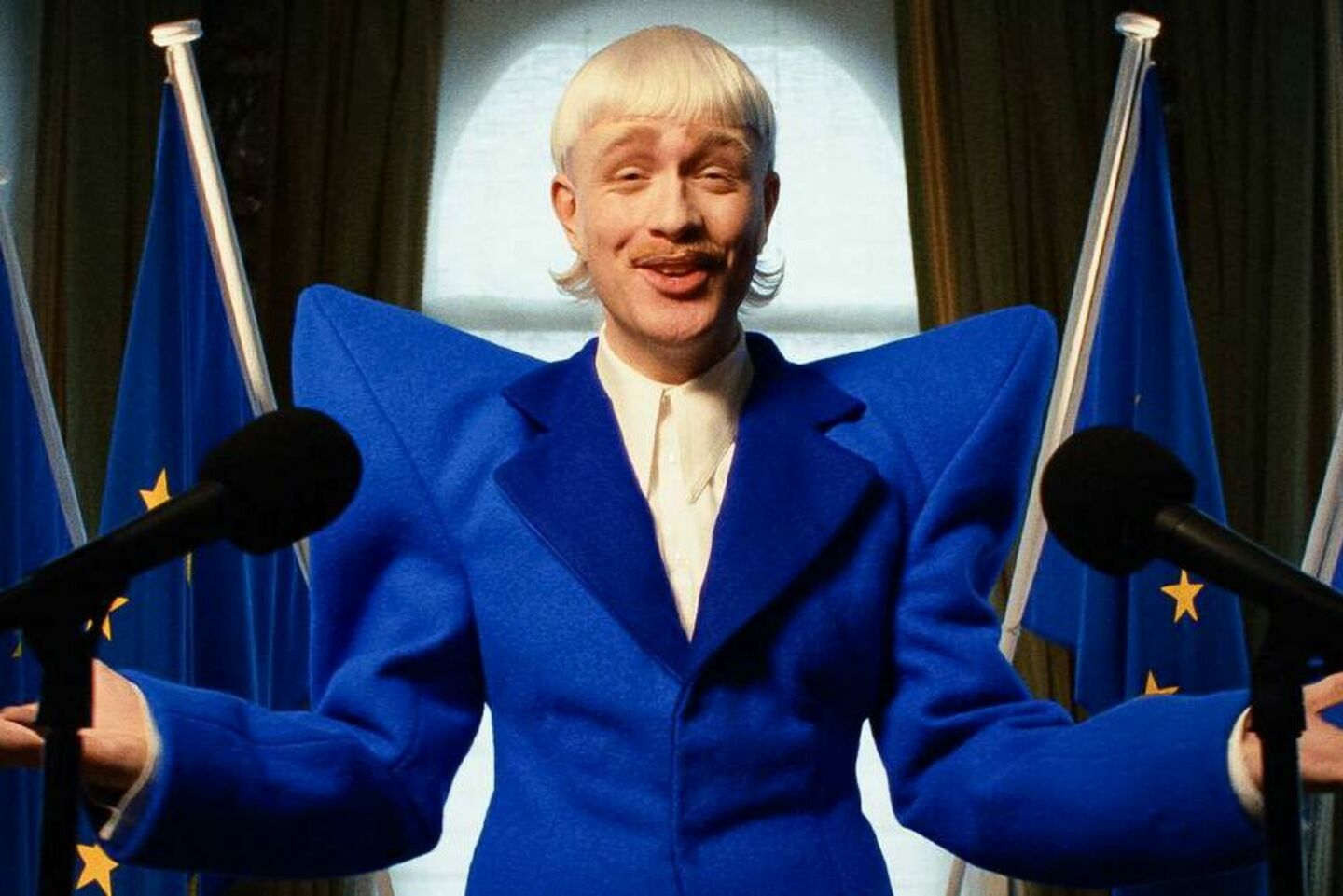
Eurovision Song Contest: from favoritism to our past winners
TU/e alumnus and former Song Contest winner Ralf Mackenbach on his experience
The Netherlands is one of seven countries that have participated in the music fest since its first edition. But how often did we win? Are we guilty of favoritism? And what does TU/e alumnus and Junior Song Contest winner Ralf Mackenbach think about this?
The first edition of the Eurovision Song Contest was organized in 1956. Only seven countries participated back then: the Netherlands, Belgium, Luxembourg, Germany, France, Italy and Switzerland. The host country, Switzerland, became the big winner with their song Refrain.
The Netherlands did not win, but it will forever remain the country with the very first Song Contest song. This is because during the first edition in 1956, the event was opened by the Dutch Jetty Paerl with her song The Birds of Holland.
Since then, the Netherlands has been a loyal participant in the contest. Except for four years, there has always been a Dutch artist to represent our country. In total, the Netherlands has participated 63 times.
TU/e alumnus and Song Contest winner
During this period, the Netherlands won the title five times. In 1957 (Corry Brokken - Net als toen), 1959 (Teddy Scholten - 'n Beetje), 1969 (Lenny Kuhr - De troubadour), 1975 (Teach-in - Ding-a-dong) and most recently in 2019 (Duncan Laurence - Arcade). By the way, the Netherlands ended up in the very last place just as often.
In addition, the teen version of the festival, the Junior Eurovision Song Contest, was won in 2009 by TU/e alumnus Ralf Mackenbach with his song Click clack. He was fourteen years old at the time. After all these years, he is still enthusiastic about his experience. “It was a lot of fun! You spend a week in a hotel with all the other participants, and you get to know a lot of people from different countries in that way. I loved it,” Mackenbach said.
To this day, Mackenbach remains the only Dutch winner of the Junior Eurovision Song Contest.
Favoritism on the map
Favoritism, a well-known and much-discussed phenomenon during the festival. The Netherlands gives the “douze points” to Belgium, and Belgium to the Netherlands. Greece does the same for Cyprus, and Cyprus then does it back again, and so on. That it happens is undeniable, but does it actually affect the winner, or is it "music first" (as winner Duncan Laurence said during his victory speech)?
Mackenbach isn't too sure yet. “I think neighboring countries do give each other more points compared to the average, but the top three always seemed pretty uniform to me across most countries. But that's pure speculation on my part, I could be completely wrong.” According to him, “voting for your neighbor” seems to be less of an issue during the Junior Song Contest. “I got the winning points from the Republic of Northern Macedonia - if I'm not mistaken - so instinctively I would say it happens less there. But again, to make more rigid statements I have to get to work in an Excel sheet!”
An Excel sheet proves unnecessary, as the fact that neighboring countries score each other above average has now been scientifically proven. In 2021, when the festival was organized in the Netherlands, geographer Felix Pot charted favoritism during the Song Contest [1]. According to his research, the Netherlands indeed gives an above-average score to neighboring countries Belgium and Germany. In addition, a striking number of votes go to Turkey from our country. A voting pattern that can be seen in many Western European countries, such as Germany and Belgium, due to the presence of a relatively large population with this background [2].
Pot also conducted a correction to see if favoritism actually has an effect on the eventual winner. More explanation in the drop-down box below.
Correction for favoritism
In Pot's research, he corrects existing Song Contest results for favoritism. In this process, only the points of neutral evaluators of a country are included to recalculate their score. For example, the score for the Netherlands does not include Belgium's points, and for Greece, Cyprus' points no longer count. His answer: “Rarely is political voting decisive."
According to his research, it occured only four times since 1990 that a different number won than the one that 'should have' according to the scores cleaned up for favoritism. All four times were related to a specific event. In 2016, for example, Ukraine won over favorite Russia, with a song about the occupation of Crimea.
The most successful Song Contest country appears to be Sweden. Both before and after correction for favoritism.
Europapa
Tomorrow is the second semifinal of this year's Song Contest, where artist Joost Klein will represent the Netherlands. His distinctive song “Europapa” is definitely a contender for the final, according to Mackenbach. “The final for sure, first place I don't know! I think top 3, but number 1 will be tough.” As to whether he will watch, Mackenbach is not sure yet. “To be honest, I'm not the most loyal viewer. If there's a party or something else going on that night I prioritize that, but otherwise I'll be watching of course!"
[1] Pot, F. (2021). Mapping favouritism at the Eurovision Song Contest: does it impact the results? RUG - Faculty of Spatial Sciences
[2] Spierdijk, L. and Vellekoop, M. (2009). The structure of bias in peer voting systems: lessons from the Eurovision Song Contest. Empirical Economics, 36, 403-425





Discussion